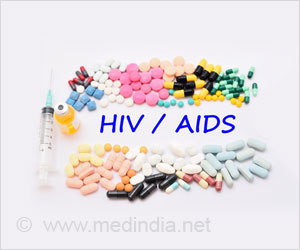Taking medicines on time is a big part of a successful marriage for Ravi and Nima -- an HIV-positive couple who met as a direct result of the enduring stigma attached to AIDS in India.
Taking medicines on time is a big part of a successful marriage for Ravi and Nima, an HIV-positive couple who met as a direct result of the enduring stigma attached to AIDS in India.
They met through a non-profit marriage bureau in India's western state of Gujarat that caters exclusively to HIV-infected people, setting up introductions and helping with legal issues for couples who choose to marry.The UNAIDS agency says some 2.5 million Indians are living with HIV, many of them ostracised by their communities.
"My father disowned me when I told him about my disease. I was lonely and needed a companion to live and enjoy the last few years of my life," said 38-year-old Ravi, a shopkeeper who contracted the infection from a sex worker.
His wife Nima tested HIV positive in 2004 when she went for a medical check-up to confirm a pregnancy. She contracted the virus from her first husband who died in 2006.
"I felt cheated and wanted to commit suicide after my husband died but I decided to marry again and work for the widows of HIV patients," Nima said.
The Gujarat Marriage Bureau for People Living with AIDS was the first of its kind when it set up in 2005, but there are now eight similar agencies across India, most of them established by people living with HIV.
Advertisement
Those who register are required to make a full disclosure, including family details, complete medical history and economic status.
Advertisement
For many who register, marriage with a fellow HIV carrier provides not just companionship, but also a practical base for dealing with the illness, including mutual monitoring of medication and sharing the cost of treatment.
Bhua said the number of successful matches would be much higher but for the large gender imbalance among those who register.
In 2008, Bhua signed up 1,200 infected men, but only 76 women -- a disparity he attributed to the greater stigma attached to women with HIV which often prevents them doing anything that might bring attention to their condition.
NGOs working in AIDS prevention in India have logged countless cases of families rejecting members with HIV, doctors refusing to treat HIV-positive patients and infected children being expelled from schools.
According to Radhika Samant, a doctor who provides medical support to people with AIDS in India's commercial capital, Mumbai, marriage between those infected with HIV can help prevent the spread of the virus.
"The government should be promoting this," Samant said.
In a country where the pressure to marry is very strong, a number of young, HIV-positive people agree to their parents' wishes even though they are aware of the risks of infecting their future spouses and passing the virus to their future children.
"This chain of infection has to end," said Daksha Patel, a social worker who was infected by her husband and decided to terminate her pregnancy to avoid passing on the virus.
"India needs more marriage bureaux for HIV positive (people) to control the spread of the disease," Patel said.
Source-AFP
SRM















